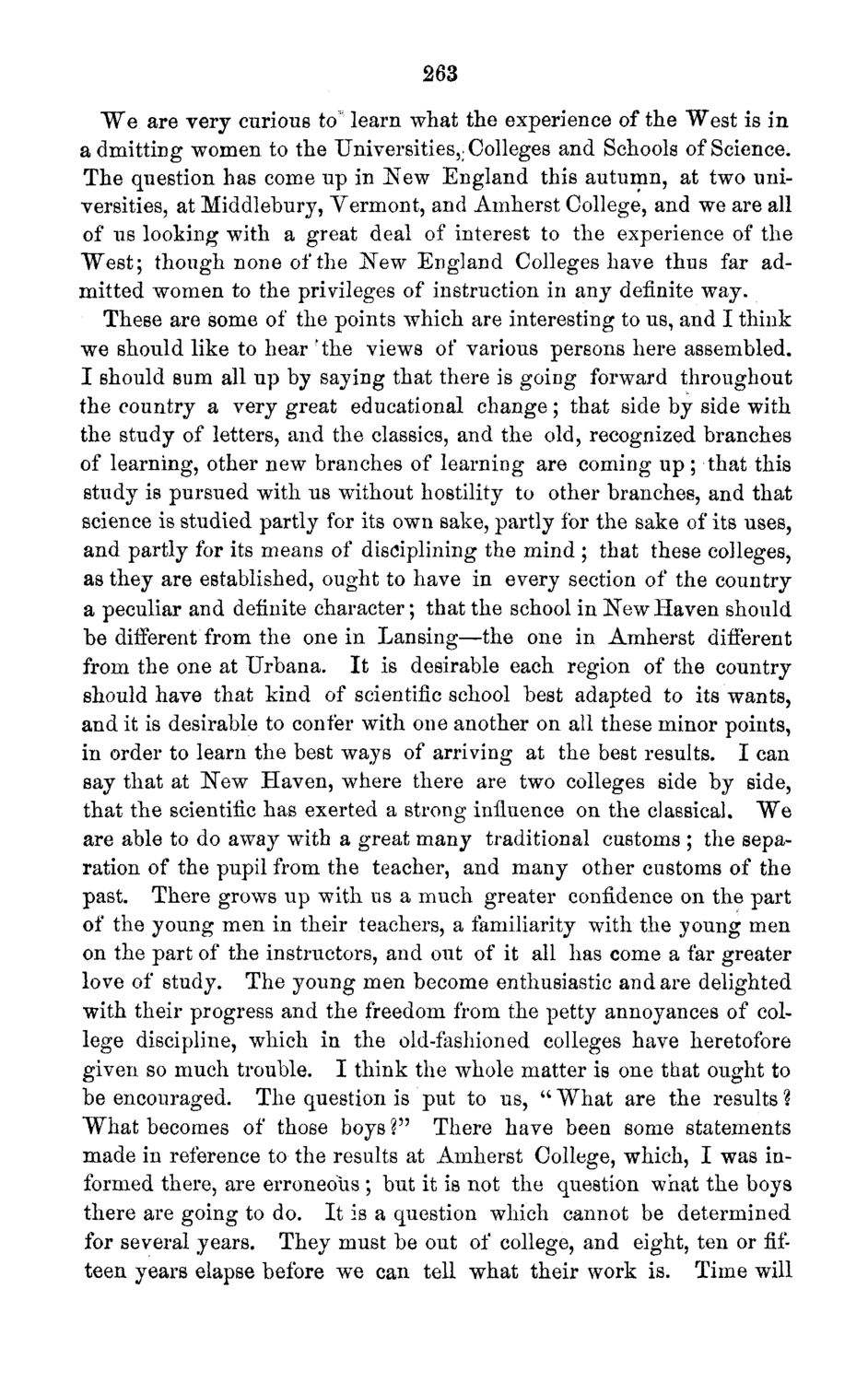| |
| |
Caption: Board of Trustees Minutes - 1871
This is a reduced-resolution page image for fast online browsing.

EXTRACTED TEXT FROM PAGE:
263 W e are very curious to learn what the experience of the West is in admitting women to the Universities,; Colleges and Schools of Science. The question has come up in New England this autumn, at two universities, at Middlebury, Vermont, and Amherst College, and we are all of us looking with a great deal of interest to the experience of the West; though none of the New England Colleges have thus far admitted women to the privileges of instruction in any definite way. These are some of the points which are interesting to us, and I think we should like to hear 'the views of various persons here assembled. I should sum all up by saying that there is going forward throughout the country a very great educational change; that side by side with the study of letters, and the classics, and the old, recognized branches of learning, other new branches of learning are coming u p ; that this study is pursued with us without hostility to other branches, and that science is studied partly for its own sake, partly for the sake of its uses, and partly for its means of disciplining the mind ; that these colleges, as they are established, ought to have in every section of the country a peculiar and definite character; that the school in New Haven should be different from the one in Lansing—the one in Amherst different from the one at Urbana. It is desirable each region of the country should have that kind of scientific school best adapted to its wants, and it is desirable to confer with one another on all these minor points, in order to learn the best ways of arriving at the best results. I can say that at New Haven, where there are two colleges side by side, that the scientific has exerted a strong influence on the classical. We are able to do away with a great many traditional customs ; the separation of the pupil from the teacher, and many other customs of the past. There grows up with us a much greater confidence on the part of the young men in their teachers, a familiarity with the young men on the part of the instructors, and out of it all has come a far greater love of study. The young men become enthusiastic and are delighted with their progress and the freedom from the petty annoyances of college discipline, which in the old-fashioned colleges have heretofore given so much trouble. I think the whole matter is one that ought to be encouraged. The question is put to us, " What are the results ? What becomes of those boys ?" There have been some statements made in reference to the results at Amherst College, which, I was informed there, are erroneous ; but it is not the question what the boys there are going to do. It is a question which cannot be determined for several years. They must be out of college, and eight, ten or fifteen years elapse before we can tell what their work is. Time will B
| |